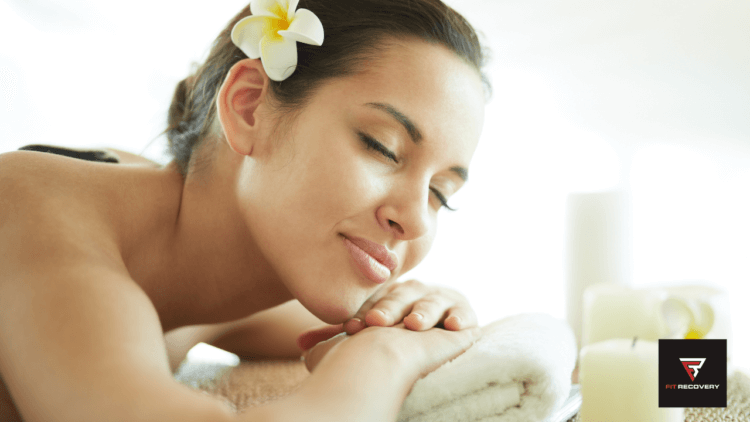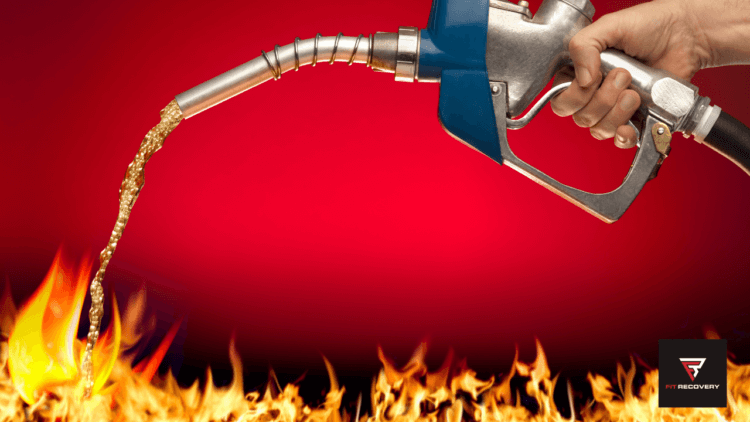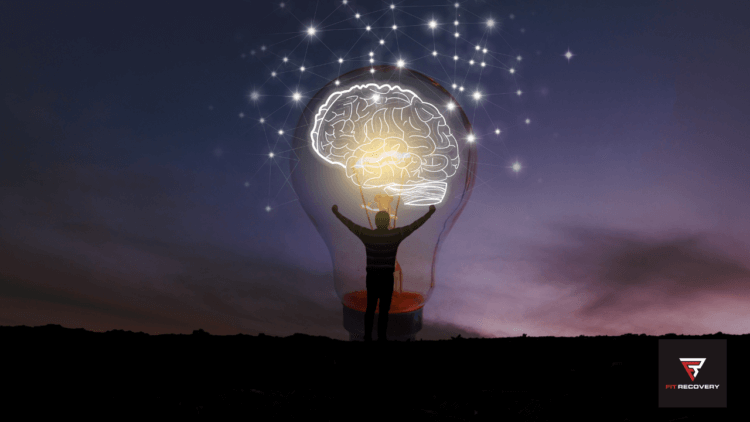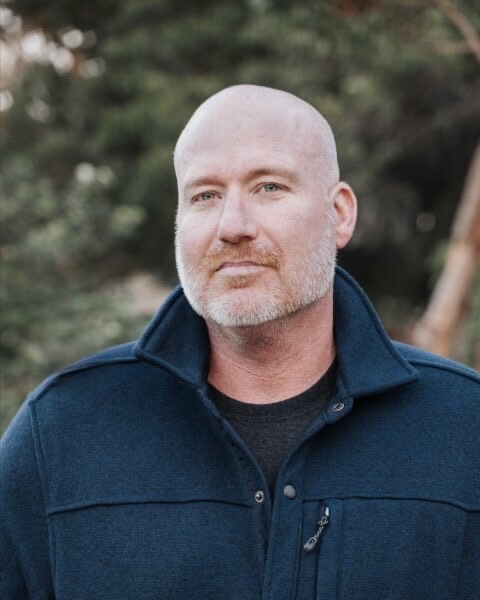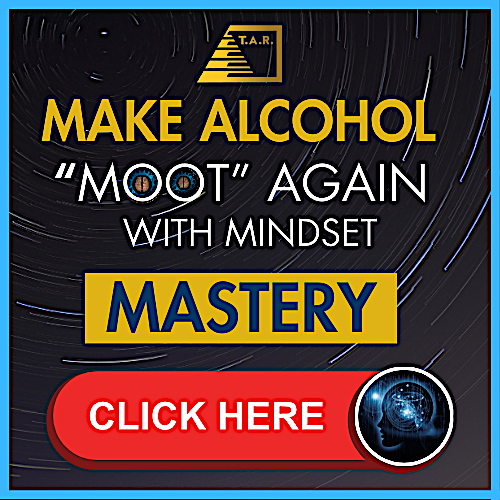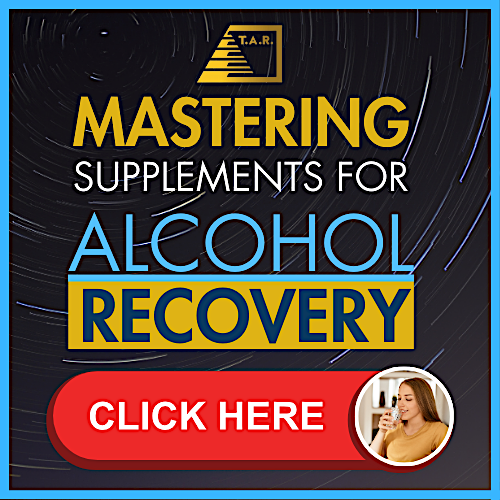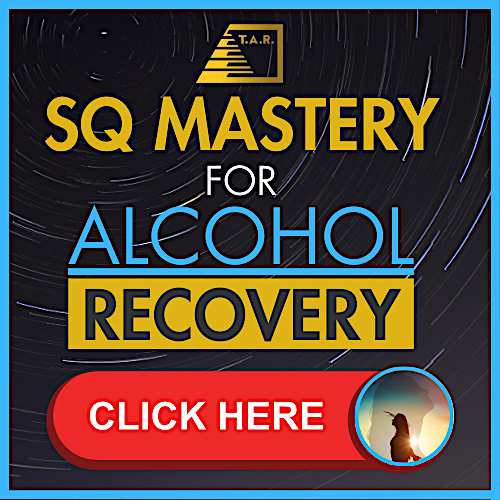Today we’re going to talk about the psychological aspect of addiction. A lot of people think that there are set “causes” to use, like triggers. This isn’t true. If there was a clear cause-and-effect relationship to drinking alcohol, everyone would be drinking, which is obviously not true.
Rather, we all simply have reasons for using. This is why alcohol addiction isn’t an indication that something is wrong with you. You simply have reasons and beliefs for using. As such, my goal is to understand what those reasons for use are so that we can work to address them and make giving up alcohol much easier.
Conventional recovery methods are cookie-cutter approaches that treat every human the same. It’s like a mill, you come in and you should come out fixed. But that’s obviously not the case given that most people going through conventional treatments relapse. This relapse is because you are an individual, not a robot, and you need to have a uniquely tailored approach that deals with your beliefs, reasons, and desires.
So, let’s talk about some of the most common reasons for use and how we can start to identify those reasons in ourselves…
1. Pleasure
Many who reach for alcohol do so for pleasure, for feeling good. The problem is that those feel-good neurochemicals last for only 15–20 minutes, after which you need to keep drinking to fix the withdrawal that happens afterward.
Many people have a fear of pleasure and a dissociation from receiving it, and this piece is pivotal in many individuals’ path to overcoming addictions. Our emotional reactions around pleasure are often ignored due to the “getting shit done” mindset. We justify not needing pleasure because it takes too much time.
We often overlook our own pleasure needs because of time constraints, or we frame our lives as needing to be boring as an adult.
We need to work pleasure practices into our days. Journals can be incredibly useful here for identifying what activities other than drinking bring us pleasure, and then we need to incorporate those things into our days.
Give yourself permission to experience pleasure outside of drinking.
Have at least a couple of daily rituals that provide pleasure for you that do not involve your addictive habit; think fine chocolate, walking in nature, playing with your pet or children, etc… Make it a daily practice to receive pleasure and let go of guilt for accepting it into your life.
2. Stress
Many people are chronically stressed and alcohol provides a sedative effect that allows us to relax. That’s expected, given that it strongly activates our GABA receptors. The issue is that after the alcohol wears off, there is a glutamate rebound that causes stress and anxiety later that day or the following morning, which inevitably leads to more drinking to quell those feelings. It’s a vicious cycle.
Do an inventory to find the root reasons for your alcohol use by making a list of your stressors.
Be honest. What stresses you out? Work, money, and relationships are huge in this area. You need to address the root cause of your stress to help reduce the perceived need for alcohol. Explore these key domains in your life to see where the things stressing you out are focused. Determine if they can be reframed, or if they are self-chosen stressors that you could renegotiate.
If we continue to attempt to band-aid these stressors in an ineffective manner; your life will continue to be compounded with not only the root stressors but now the fall out from all of the maladaptive coping mechanisms.
It’s akin to attempting to put a fire out by dumping gasoline on it.
Writing out a cost-benefit analysis is helpful here. Something about seeing it on paper helps our brains solidify finding a solution rather than just accept these stressors as inevitable. Some stressors that were previously non-negotiable stressors can be re-worked in a way that doesn’t fill your stress ‘bucket’ too quickly.
3. Wrong Labels
If you are referring to yourself as an alcoholic or something similar, then you are setting yourself up for failure because you have incorporated alcohol into your identity rather than simply looking at it as a choice. It probably doesn’t feel like drinking is a choice, but it is. The only reason it doesn’t feel like a choice is because your subconscious is chronically rationalizing your use.
Reframing your use as a choice and the process of quitting as a learning process—is key to making sustainable changes.
Remember, there isn’t anything wrong with you, you just have some maladaptive habits that need to be altered. Don’t wait for the magic number of months free from your addiction to start celebrating your new life now. Embody your new persona of a non-drinker now. Hating the current situation you’re in due to past errors in judgment reinforces the negative self-image by reiterating; “I reject the trials given to me. I am at war with myself. I am no good. I am not enough. I am unlovable as I am. I do not deserve to experience the pleasures of my human experience.”
What’s wrong with this rhetoric is it often leads to self-sabotage—black and white dichotomous behaviors. Entertain me for a minute—a negative self-image has our brains constantly in judgment mode talking about ourselves in a demeaning way. Fall out is fairly predictable here and we tend to perform acts of punishment, which I am sure you can guess what the quickest way to punish yourself is; ingesting a poison like ethanol. If we walk through life in a constant state of disapproval of who we are at an intrinsic level we cannot maintain a healthy psychological state.
The antidote to this is radical self-love and acceptance of who we are at a fundamental level.
Give yourself permission to embody the person you want to become instead of holding yourself hostage to former mistakes.
4. Boredom
Many drink out of sheer boredom. Most of us who have a drinking history can relate here. Why do we do this? It is my belief that it is a missing piece of the human experience as we are designed to create. We attempt to fill a creativity hunger with alcohol—which is like eating air instead of food.
It is going to lead to death or substantial damage every time when we attempt to feed a basic human desire with inappropriate substances.
I am of the belief that the remedy to this phenomenon is exploring the places where creativity is wanting to be released. How do we find our creative practice? Ask yourself what excites you? Reading, traveling, exercise, music, cars, gardening, sports; what?
We all have something that hits our dopaminergic system that doesn’t relate to alcohol. You need to engage in these behaviors on a daily basis so that you don’t become bored and resort to drinking to pass the time.
5. Sexual Wounds
This is a taboo topic but is ultimately at the root of many who use alcohol inappropriately because many people want to numb out their traumatic memories around sexual abuse or molestation. Just remember, trauma doesn’t cause you to use it, it’s just a reason for it. It delays emotional healing is a delay only, not a solution. Meaning it will constantly come back to haunt you until you deal with it appropriately.
Many are simply shut down in a complete fear response around their sexuality and alcohol becomes their only option for pleasure in this arena. It must be reframed to exit this horrible spiral. You didn’t have control over what happened to you, but you do have control over your healing.
Similarly, many women feel the need to drink to be sexually intimate because of insecurities. Many utilize alcohol as a way to avoid feeling the expansiveness of their sexual fears, or embarrassment in this area. It’s similar to someone with agoraphobia and never wanting to leave the house. Do you know what the clinically proven solution to this is? Exposure therapy. Slowly exposing yourself in front of a trusted partner will help to minimize this fear response you’ve historically drunk to mute.
If we don’t accept the body we are in (even if it isn’t up to our standards), we will always reject human touch and being visible to another human. Touch and sex is a basic human need to facilitate attachment and connection. Denying this aspect of our humanness leads to the desire to drink in order to get these needs met.
We need to embody our sensuality without ingesting a numbing poison. We need to take time to build up and embrace our sexuality, rather than avoid it with alcohol.
Ultimately, doing a cost-benefit analysis can be helpful. Make a T-table and just list the reasons for drinking and the reasons against it. Remember, those “for” reasons can be as simple as reducing stress from work, providing pleasure, or being a source of escape. If you can heal your faulty perceptions and change your mindset, then your addictions will usually fall to the wayside.
Author
-
Matt Finch, the Fit Recovery Head Coach, embodies the power of transformation. With over 13 years of freedom from both alcohol and opioids, he has turned his personal journey into a beacon of hope for others. Previously a Certified Substance Abuse Counselor at an outpatient treatment center, he has dedicated his life to empowering individuals to break free from the chains of addiction. Through his innovative recovery coaching programs, he has joined forces with Chris Scott and Fit Recovery, inspiring thousands to overcome their struggles. By offering one-on-one recovery coaching, engaging group sessions, and dynamic online courses, along with his uplifting podcast, "The Matt Finch Show: Fit Recovery 2.0 Members-Only Alcohol-Free Lifestyle Podcast," he illuminates a path to a healthier, addiction-free lifestyle.
View all posts Fit Recovery Head Coach


